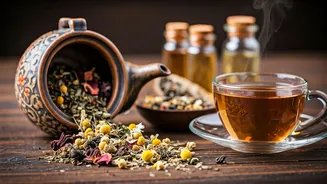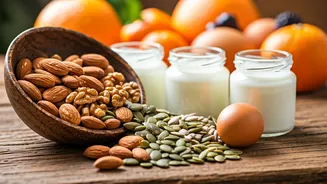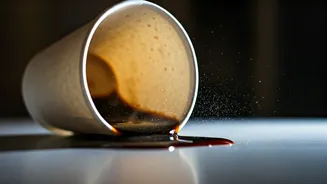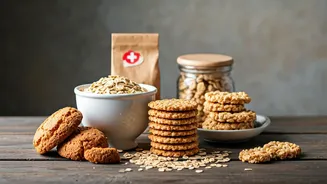Understanding Cholesterol Basics
Cholesterol, a waxy substance found in your blood, is vital for building healthy cells. However, high levels of LDL (bad) cholesterol can increase the
risk of heart disease, heart attacks, and strokes. HDL (good) cholesterol helps remove LDL cholesterol, protecting your arteries. Factors like diet, genetics, and lifestyle choices influence cholesterol levels. Regular cholesterol checks are important for monitoring your heart health. Making informed decisions and understanding the role of cholesterol is a significant first step. High cholesterol often presents no noticeable symptoms, making routine checkups even more critical. Healthy cholesterol levels are a key aspect of cardiovascular wellbeing, and making informed lifestyle decisions can have a positive impact on the same.
Herbal Teas for Cholesterol
Certain herbal teas contain compounds that may help lower cholesterol levels. Green tea, for instance, is rich in antioxidants that may reduce LDL cholesterol. Similarly, oolong tea has shown potential in lowering cholesterol due to its polyphenol content. Hibiscus tea can also be beneficial, with studies indicating that it can improve both blood pressure and cholesterol profiles. Drinking these teas regularly, as part of a balanced diet, might contribute to heart health. Remember, herbal teas should complement, not replace, medical advice. Different teas work through various mechanisms, such as reducing the absorption of cholesterol or improving the function of blood vessels. It’s always sensible to consult a healthcare professional before making significant changes to your diet, particularly if you have existing health concerns.
Green Tea’s Cholesterol Fighter
Green tea is packed with antioxidants, most notably catechins, which may help reduce LDL cholesterol. These antioxidants can prevent the oxidation of LDL cholesterol, making it less likely to cause damage to arteries. Regularly consuming green tea can be an easy way to promote heart health. It can be enjoyed hot or cold, making it versatile for different preferences and seasons. Studies suggest that drinking several cups of green tea daily might lead to improvements in cholesterol levels, though individual results can vary. The benefits of green tea extend beyond cholesterol management, encompassing potential advantages for weight control, brain function, and overall wellbeing. Make sure to choose high-quality green tea and maintain healthy habits to get the most from it.
Oolong Tea's Health Benefits
Oolong tea also contains compounds that may help in lowering cholesterol. This tea sits between green and black tea in terms of oxidation and flavor. Its polyphenols have been linked to improved cholesterol levels. Regular consumption might promote healthy cholesterol profiles. Oolong tea can be incorporated into your daily routine easily. The tea can be enjoyed in different ways, adding diversity to your dietary choices. Drinking oolong tea could also contribute to metabolic health. Research indicates that oolong tea has the potential to aid in weight management and offer other health benefits. It is also important to note that the impact of oolong tea can vary from person to person. Maintaining a well-rounded diet and lifestyle is essential for overall wellbeing.
Hibiscus Tea's Potential
Hibiscus tea, known for its vibrant color and tart taste, may have a positive impact on both blood pressure and cholesterol levels. Research suggests that drinking hibiscus tea can help lower LDL cholesterol and improve overall cardiovascular health. It is rich in antioxidants, which are beneficial for the body. The tea is easy to prepare and can be consumed hot or cold. It can provide a refreshing and healthful beverage choice. Hibiscus tea also offers additional health benefits, like support for liver function. The tea could also improve metabolic health. Hibiscus tea can serve as a flavorful addition to a heart-healthy diet when consumed regularly. Remember to consult a healthcare professional when making changes to your health regimen.
Incorporating Teas Safely
While herbal teas offer potential benefits, it's important to consume them safely. Start slowly and monitor how your body reacts to the tea. Talk to your doctor before making significant changes to your diet, especially if you take medications. Herbal teas can interact with certain medications. Ensure you are getting your tea from a trustworthy source to guarantee quality and purity. Avoid excessive consumption of any tea to prevent potential side effects. Herbal teas should be used as part of a complete strategy for cholesterol management, including a balanced diet and regular exercise. Being mindful of your body’s signals and making informed choices is crucial. Always prioritize professional medical advice when addressing health concerns, and consider herbal teas as a supplement to your overall health routine.



















